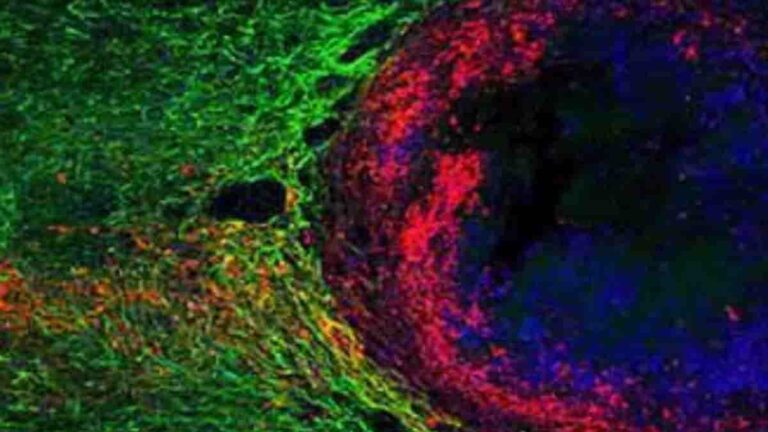The extraordinarily homogeneous anatomical patterning of the brain’s cortex is controlled by genetic factors, suggests a new study by an international research consortium led by Chi-Hua Chen of the University of California, San Diego, and Nicholas Schork of the J. Craig Venter Institute. The human brain’s wrinkled cerebral cortex, which is responsible for consciousness, memory,…
Category: Neurology
TREM2 Variant Facilitates Amyloid Beta Uptake By Microglia
Individuals having a variant copy of the TREM2 gene have an increased risk of developing Alzheimer’s disease, but researchers are only beginning to understand why. A Genentech study has now uncovered details of how a type of immune cell helps the brain get rid of the tiny amyloid beta aggregates that can clump together to…
Stent Retrievers Triggering Paradigm Shift In Stroke Care
New devices called stent retrievers, which effectively reverse strokes, may be revolutionizing the treatment of certain stroke patients. According to an article by Loyola Medicine neurologists Rick Gill, MD and Michael J. Schneck, MD, stent retrievers are a major advance in acute ischemic stroke care and will have significant impact on the evolution of stroke…
New Alzheimer’s Disease And Diabetes Link Found
Alzheimer’s disease and type 2 diabetes are so closely related that drugs currently used to control glucose levels in diabetes may also alleviate the symptoms and progression of Alzheimer’s disease, according to new research from the University of Aberdeen. This is also the first study of its kind to show that Alzheimer’s disease can lead…
Parkinson’s Symptoms And Stomach Infections Link Found
A common bacteria that infects the human stomach has significant links with worsened symptoms of Parkinson’s disease, researchers have found. Researchers at the University of Malaya analysed a small group of Parkinson’s disease patients with and without a common infection of the stomach lining caused by the bacterium Helicobacter pylori. Their results showed that those…
NMNAT2 Enzyme May Protect Against Neurodegeneration
An enzyme known as NMNAT2 may help protect against the debilitating effects of certain degenerative brain diseases, including Alzheimer’s, research led by biomedical researchers at Indiana University has found. Many neurodegenerative disorders are caused by accumulation of proteins in the brain. These conditions, called proteinopathies, occur when proteins “misfold,” causing them to grow “sticky” and…
Olfactory Ensheathing Cell Transplantation After Spinal Cord Injury
Olfactory ensheathing cells, also referred to as olfactory ensheathing glia, are a type of radial glia found in the nervous system. They are also known as olfactory Schwann cells because they ensheath the non-myelinated axons of olfactory neurons in a similar way to which Schwann cells ensheath non-myelinated peripheral neurons. They also share the property…
Shift Work Leads To More Severe Strokes
Employees who don’t work the typical nine-to-five day have a higher tendency towards developing numerous health conditions, from heart attacks to obesity. Now new research shows shift work may also have serious implications for the brain. According to 2004 data from the Bureau of Labor Statistics, almost 15 million Americans work full time on evening…
Blood-brain Barrier Leakage Linked To Alzheimer’s Disease
In a new study using contrast-enhanced MRI, researchers have identified leakages in the blood-brain barrier (BBB) of people with early Alzheimer’s disease (AD). The findings suggest increased BBB permeability may be a key mechanism in the early stages of the disease. Researchers used contrast-enhanced MRI to compare 16 early AD patients with 17 healthy age-matched…
